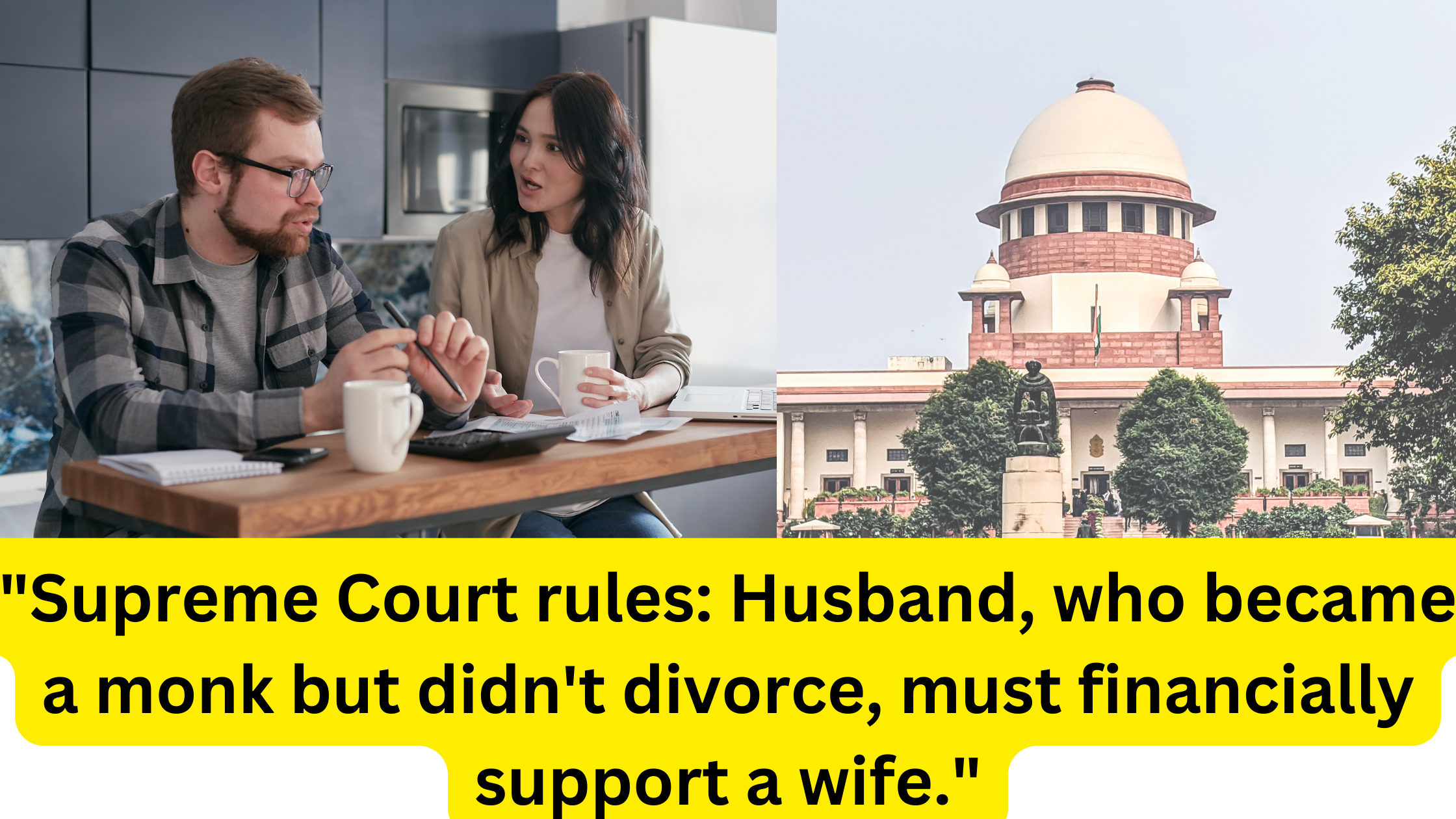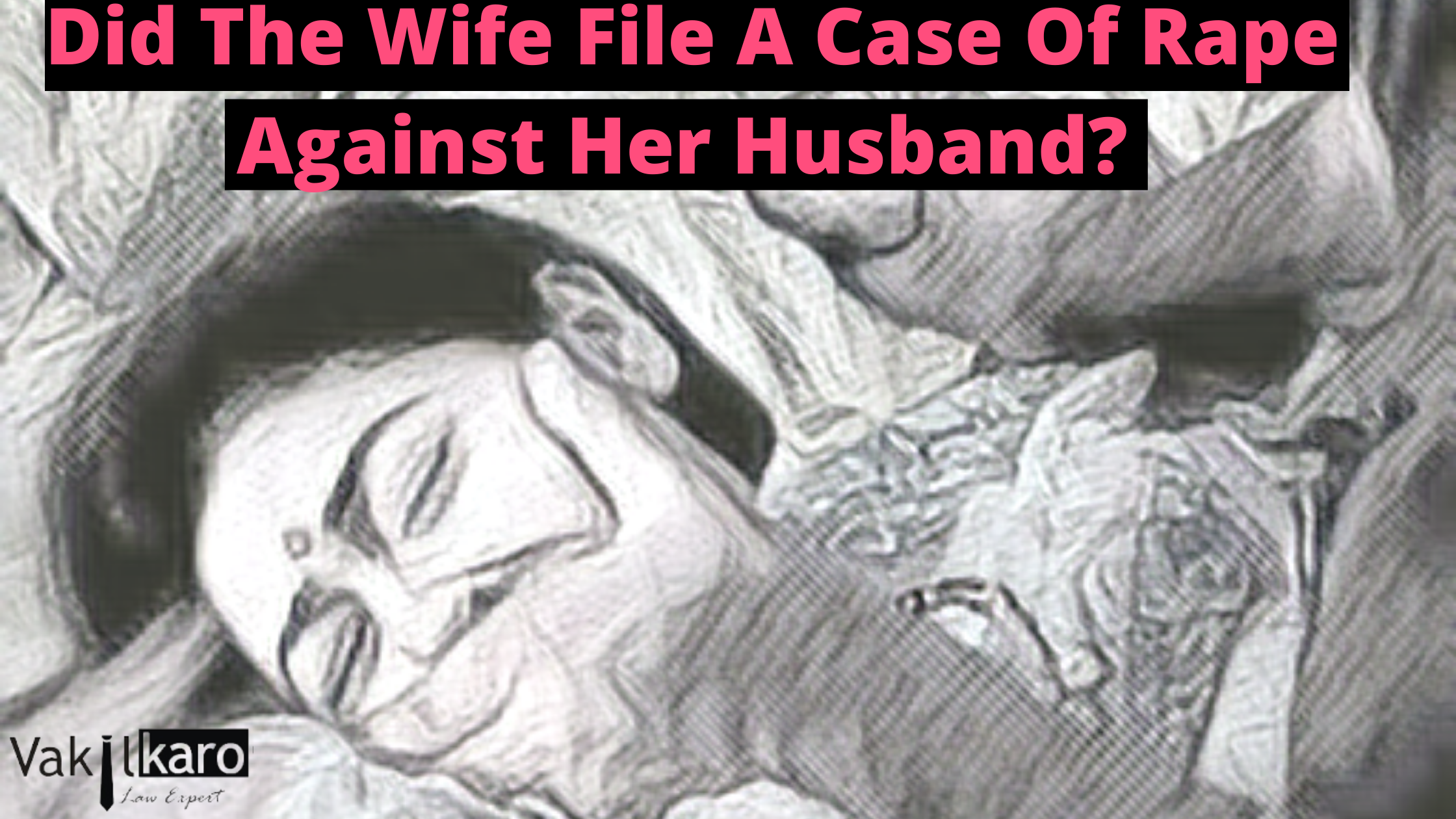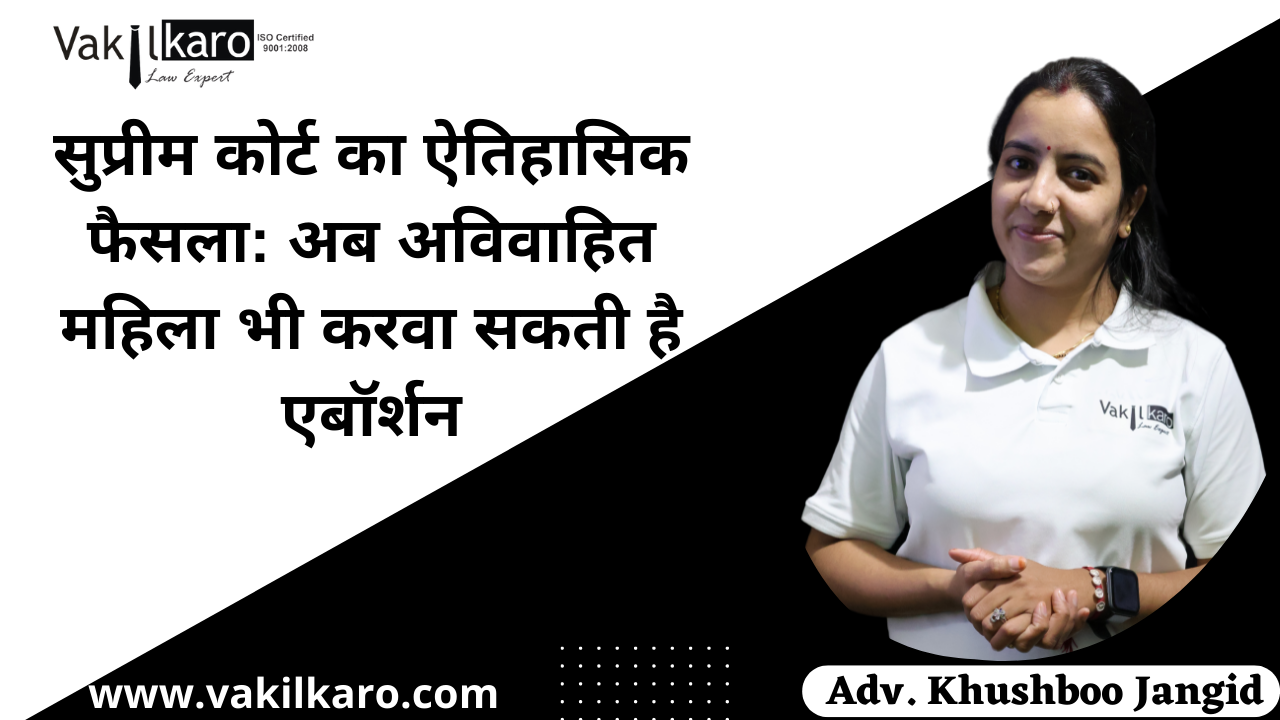"Supreme Court rules: Husband, who became a monk but didn't divorce, must financially support a wife."
Under Indian provisions, the Supreme Court has ruled that a husband who becomes a monk but does not divorce his wife is still obligated to support her financially. This ruling is based on the Hindu Marriage Act principle, which recognizes a husband's duty to provide for his wife's maintenance and support. Even if the husband chooses to renounce the world and become a monk, he must still fulfill his obligations to his wife. The court has held that the husband's decision to become a monk does not absolve him of his responsibilities towards his wife and that he must provide financial support to her as per his means.
This divorce case is from Bhind in MP. Husband and wife have been living separately for 18 years. In 2008, the husband filed a divorce petition in the Family Court and said he had become a monk. This petition was dismissed in the Family Court. The matter reached the MP High Court. She got a divorce here. The wife didn't want a divorce; she went to the SC.
On 18 August 2022, the SC rejected the divorce and said:
- In India, a husband who becomes a monk but does not divorce his wife is still responsible for his wife and children. Under the Hindu Marriage Act, a husband is legally obligated to provide for his wife's maintenance and support, even if he has chosen to renounce the world and become a monk.
- This means that he must provide for his wife's basic needs, such as food, clothing, and shelter, as well as other necessities based on his means and her requirements.
- In addition, if the husband has children, he is responsible for providing for their maintenance and support. This includes providing for their education, healthcare, and other basic needs.
- It's important to note that the amount of support and maintenance that a husband who has become a monk is required to provide will depend on various factors, such as his income, the needs of his wife and children, and the standard of living they were accustomed to during their marriage. Suppose there is a dispute over the amount of support to be provided. In that case, the court may intervene to determine a fair and reasonable amount based on the case's specific circumstances.
Hindu Marriage Act provisions:
- Sections 24 and 25 of the HMA deal with the maintenance and support a spouse is entitled to during and after divorce proceedings. However, the principles laid out in these sections are also relevant to situations where a husband has become a monk but has not divorced his wife and children and his obligations towards them.
- Section 24 of the Hindu Marriage Act deals with the maintenance that can be awarded to either spouse during the pendency of a divorce case. If the court is satisfied with a prima facie case in favor of the spouse seeking maintenance, it may order the other spouse to pay a monthly sum for their maintenance and support. This section applies to both spouses, and it is possible for a wife whose husband has become a monk to seek maintenance under this section.
- Section 25 of the HMA deals with the maintenance that can be awarded to either spouse after divorce proceedings. This section allows the court to order permanent alimony or maintenance to either spouse, taking into account various factors such as the income and earning capacity of both parties, their conduct during the marriage, and their individual needs and expenses. Once again, this section applies to both spouses and can be used by a wife whose husband has become a monk to seek maintenance and support from him.
Exparte divorce decree provisions and section if the husband becomes a monk:
- There is no specific provision or section in Indian law that deals with ex-parte divorce when the husband has become a monk. However, the general principles of divorce law and the requirements of the Hindu Marriage Act 1955 would apply to such a situation.
- Under the Hindu Marriage Act, a divorce may be granted on various grounds, including cruelty, adultery, desertion, and irretrievable marriage breakdown. If a wife files for divorce on any of these grounds, and the husband who has become a monk does not respond to the notice served by the court, the court may grant an ex parte divorce based on the evidence presented.
- Once the court grants an ex parte divorce, the decree would be final and binding, and the marriage would be dissolved. However, it is essential to note that even after the divorce, the husband who has become a monk may still have obligations towards his wife and children, including the payment of maintenance and support, as discussed earlier under Sections 24 and 25 of the Hindu Marriage Act.
In summary, while Sections 24 and 25 of the Hindu Marriage Act specifically deal with maintenance and support in the context of divorce proceedings, the principles laid out in these sections can also be used to seek maintenance and support from a husband who has become a monk but has not divorced his wife and children. A wife in this situation can seek maintenance under these sections based on her needs and the means of her husband, and the court can make an appropriate order for maintenance and support based on the case's specific circumstances. A husband who has become a monk but has not divorced his wife still has a legal obligation to provide for her and their children's maintenance and support. This obligation is based on the principles of the Hindu Marriage Act and may require the court's intervention to determine the appropriate amount of support to be provided.
Vakilkaro is a Best Legal Services Providers Company, which provides Civil, Criminal & Corporate Laws Services and Registration Services like Private Limited Company Registration, LLP Registration, Nidhi Company Registration, Microfinance Company Registration, Section 8 Company Registration, NBFC Registration, Trademark Registration, 80G & 12A Registration, Niti Aayog Registration, FSSAI Registration, and other related Legal Services.
Contact India's best Legal Firm, Vakilkaro, today. You can give us a call at +919828123489 or may write an Email also at help@vakilkaro.co.in. We are here to serve you 24/7.
"Happy Customer serves the company success"- we aim to achieve this through our legal services."
Why should you trust Vakilkaro?
- 100% guaranteed satisfaction
- Largest Network across India
- Easy to Hire
- Provides legal service in easy language.

 +91 9828123489
+91 9828123489 +91 9828123489
+91 9828123489 help@vakilkaro.co.in
help@vakilkaro.co.in







.png)







.jpg)
.jpg)
.png)

.png)
.jpg)
 +91 9828123489
+91 9828123489 help@vakilkaro.co.in
help@vakilkaro.co.in